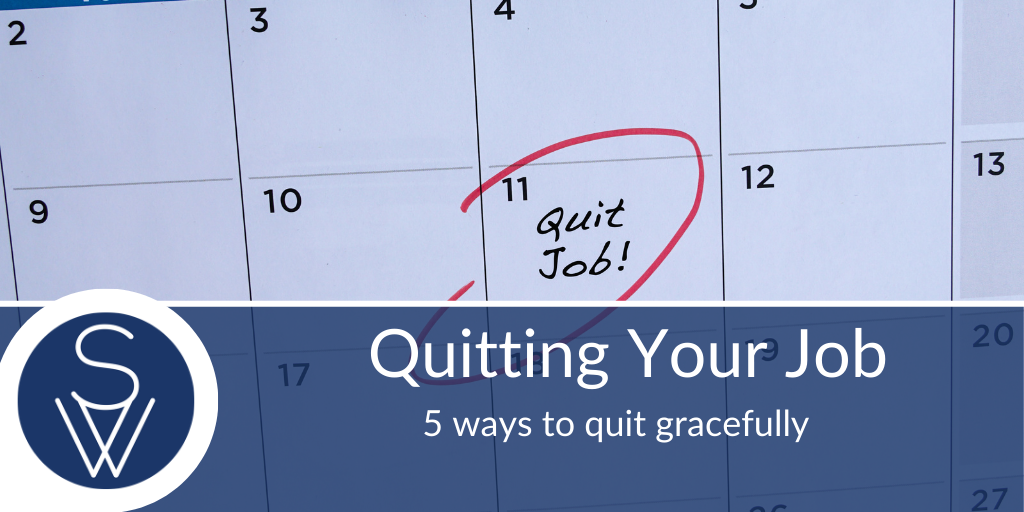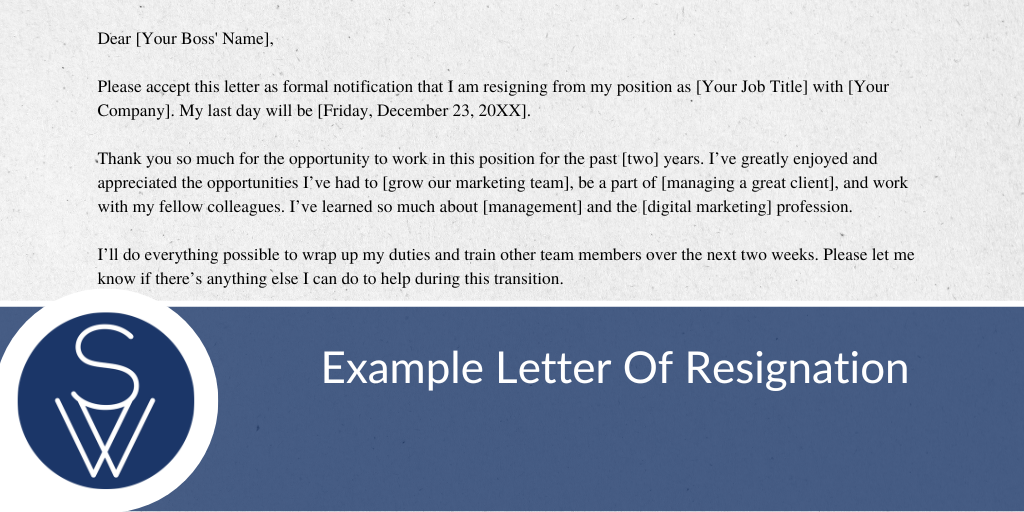I recently posted a story on LinkedIn of a candidate who did everything right when resigning from their role. You can check the post out here. This story has inspired me to expand on the idea of how to leave your job the right way.
Time For A Change? 8 Reasons For Leaving Your Job
2023 is set to see an increase in employee turnover with at least three-quarters of the American workforce actively pursuing alternative employment. It’s a trend that is expected to continue for the foreseeable future, but as a candidate, how do you know when it’s time for a change?
These are some of the reasons we hear most frequently at SkyWater in no particular order (and it’s not all about the money):
At SkyWater Search we know from our experience of talking to candidates on a daily basis that a growing number of disgruntled employees are desperate to quit their current job before securing their next career move. If you are intent on resigning without a formal job offer from a new employer, take our advice and read this article.
In a recent blog titled "Before you quit your job, read this!" we gave some advice on how to get your ducks in a row before leaving your current role, to set yourself up for success during the upcoming time of change. If you have now secured your next career move, it’s time to hand in your notice.
The way most people quit their job ranges from a spontaneous walk-out to agonizing over how to explain their decision to leave to their boss and colleagues. Some professionals become so anxious about quitting they decide not to accept an alternative job offer.
Quitting Your Job: How To Handle The Exit Interview
You have an exciting job offer and you’ve quit your existing job, eager to get started in your new role. Now your current employer has asked for an exit interview, the thought of which fills you with dread. What do you do?
It’s HR policy in many companies to request an exit interview. This gives the hiring manager the chance to find out exactly why you are leaving the company and your views on working for them. This can be a difficult situation for many employees, especially if your time with your employer has not been a happy one. Do you air your grievances about your co-workers and your boss or do you smile and claim it’s “nothing personal?”
The decision is up to you, but as with every interview, preparation is the key. Our tips below will provide you with a good starting point.
An under-explored lesson from the Great Resignation.
Two years into the pandemic, a Jobsage mental health poll found that most (55%) of American workers had experienced “significant stress” within the past year, with 38% reporting symptoms of depression. In addition, a staggering number reported that it had become difficult for them to even work at their jobs, citing very specific reasons: 37% reported a “lack of motivation,” 36% named anxiety, and 31% pointed to “feelings of anger.” When asked why they had resigned, more than a quarter of respondents (28%) said it was because of the job’s “impact on their mental health.”
Example Resignation Letter
| Dear [Your Boss' Name], [Your Name] |
Quiet Quitting: Yes, even your best managers are at risk
According to Gallup, only one-third of managers are engaged at work.
You’ve heard the term by now, but the phrase “Quiet Quitting” is a pretty confusing name for an alarming trend, one that every employer of white-collar professionals needs to understand – and get ahead of quickly. To solve the problem, employers must first fully grasp what quiet quitting looks like, what causes it, and who is most vulnerable. The concept is better captured by another phrase that has emerged lately: "Act your wage."
Are you stuck in a job you hate? Over the course of a career, most of us will endure a bumpy patch here or there: moments of feeling overworked, unchallenged, underappreciated, disappointed, badly bossed – or just plain bored. They’re awful. But they’re usually brief.
A Surprisingly Easy Solution to Executive Burnout and Resignation:
It may be time to rethink your Executive Assistant Recruiting Strategy
According to a very recent Deloitte study, 57% of employees report that they want to quit their current jobs to find an employer that “better supports their well-being.”
That’s a staggering statistic, given that the Great Resignation has been going on for more than two years.
But check out this far more stunning – and sobering – finding: nearly 70% of C-suite leaders say that they, too, are actively considering leaving, for the same reason. As an executive recruiter, I’m not surprised by the number. Twin Cities organizations, like those throughout the country, are struggling to attract, hire, and retain talented senior leaders. (It’s a reality that keeps me incredibly busy.) But we should all be alarmed by the reasons for these vacancies.
Most point squarely to one overwhelming reality for today’s executive: burnout.
















